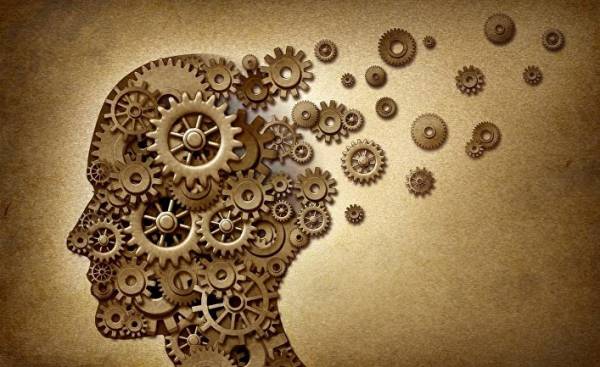
Forgetting is considered a common thing in everyday life. Almost every day a person happen, isolated cases of memory loss, that could very well be simple and harmless. You can forget where I put my keys or forget to return a call to a friend even though you promised him. Can be more dangerous forgetfulness, entails some negative consequences, for example when a witness forgets details that need to tell the court.
Perhaps in this case you once relied on a day planner, or even use it always, recording to their notes. Or use the planner at the phone, not to resign ourselves to the problems if something will forget. Maybe you are one of those people who suffer from frequent forgetfulness of events and things of those who continually asks, “Where did I put my keys?”, “No one has seen my glasses?” “Could you call my phone? I forgot where I left it!”. Have you ever wondered why forget? What is forgetting and how it is explained?
First, we agree that forgetting does not mean that the information lost from memory or completely removed. The reason for this failure, for one reason or another, attempts to extract information from the part of the brain responsible for long term memory.
For many years psychologists have developed many theories trying to explain the phenomenon of forgetfulness. One of the first was the theory proposed by German psychologist Hermann Ebbinghaus in 1885. He has independently conducted a series of experiments, which could establish a direct link between the time that we need to retain and remember new information and our ability this information to keep, to remember or to forget.
In one of his experiments, Ebbinghaus produced a list of meaningless words, consisting of three Buk, working on over order to keep these words in memory, and then try to recall them. The time intervals after which he began to remember, were in the range of from 20 minutes to 31 days. Ebbinghaus published the results in his first study, “On memory: a contribution to experimental psychology”.
The results of his experience, which later became known as the “curve of forgetting” found a link between forgetfulness and time. After studying first, we lose information very quickly. For the rate of loss of information play a role and other factors, for example, the method of learning information, and the period of repetition. However, the “curve of forgetting” also showed that forgetfulness will not continue to decline until all the information is not lost. When you reach a certain point, the process of forgetting stops. This means that the information will consistently remain in long-term memory, and any threat of losing it is not.
After the experiments of Ebbinghaus, researchers continued to develop hypotheses and research, gradually moving towards the theories that would explain the phenomenon of forgetfulness and the factors leading to it. Refer to the most important theories, each of which considers one of the following factors, namely: failure in retrieving information, failure to store information, confusion while maintaining the information and other causes that lead to forgetting.
The theory of “interferences”
If you asked psychologists 40-50-ies of the last century on the causes of forgetfulness, then, most likely, would receive one answer, namely “interference”.
According to this theory, our memories mixed with what we’ve learned in the past and what we learn in the future. It is assumed that all the information contained in long-term memory, and can be mixed together with the new information we want to keep, which leads to deformation or malfunction in memory. You find it hard to remember what happened with you on the second day of the University, because since then, it took many events and many new memories, and they just overlapped each other.
According to British psychologist Alan was Baddely, interference theory says that forgetting occurs because memories interfere with each other and destroy each other. In other words, the forgetting of information occurs due to the interference of memories and other information in our brain.
There are two types of interference: proactive interference, which occurs when we are unable to retain any information due to the fact that it has already saved another some time ago. Old memories interfere with remembering new ones, for instance, if the person changed the phone, the old phone number at first will always make a new memory. Retroactive interference occurs when we cannot remember information that we had previously stored in memory, due to the newly saved information. In other words, new information interferes with earlier obtained and new memories are not allowed to work old.
It should be noted that the unique and outstanding events are less vulnerable to interference. Most likely, you remember your prom or high school graduation, your wedding day or birth of your child.
The theory of extinction
According to this theory, the memory over time to store information is getting worse and worse. Your forgetfulness caused by the gradual disappearance of information in long term memory due to the fact that for a long time this information is not used and is removed.
Imagine that you haven’t seen some person for a very long time and have not contacted him. When you happen to come across it, you will be hard to remember his name or where you saw him, because your memory during this period worked to erase the information on it that you haven’t used in a long time.
This theory has some gaps. The most important conclusions drawn by researchers that may not be the only factor that explains the phenomenon of forgetting, but definitely a time can cause some changes, which lead to forgetfulness. This theory cannot explain why people do not forget how to swim, not practicing swimming for many years. Moreover, the theory cannot answer why some of the events and the memories fade from memory very quickly, but some remain in it for a very long time.
The theory extract
According to this theory forgetting does not necessarily mean the Erasure of information from memory forever. Just is not sufficient incentives and effects that would allow her to extract. This means that the degree of memory depends on the availability of some keys and clues to retrieve the information. Such keys can be a certain smell, music or song, the familiar sight and much more. You definitely had the condition-immediately recall an event from the past, just hearing a certain song.
In addition to these three, there are many other theories that attempt to explain how and why we forget, why we can’t remember anything. Time is a vital factor in forgetting. According to the theory of extinction time makes it difficult to access memories, not allowing them to create the overcrowding of the information contained in our minds. Perhaps there is a kind of competition between old and new information, which can lead to forgetting one of these informations, according to the theory of interference.
Despite the fact that forgetfulness is perceived as something negative, this is a normal part of life. There are many things a person can do, wanting to improve their memory. Among them, the concentration, the repetition, the relationship of new information with previous or attitudes. And, of course, to stay away from things that can lead to distraction of thought, and sleep to give rest to the memory center in the brain.






